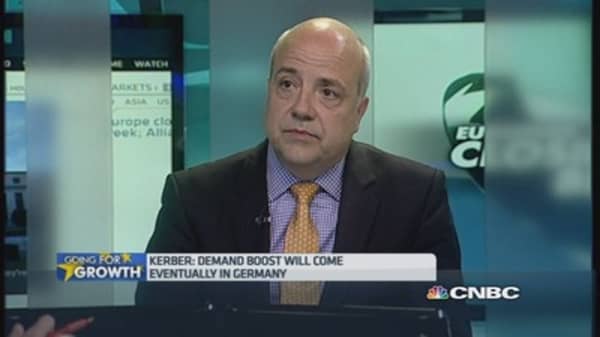By taking the euro area stocks down 2.9 percent in the course of last Friday's trading, markets may be signaling that recessionary and stagnant economies have set the stage for unsettling political developments throughout the monetary union.
There is no safe harbor left in that troubled region.
Even Germany is moving toward the eye of the storm. When you see the German Chancellor Merkel's blistering attack on its coalition partners – the Social Democrats – for having formed the government in the federal state of Thuringia with the far Left Party (Die Linke) and the Greens, you know that German political stability is gone. In fact, she sounded like she was actively searching for a new partner when, in the same speech last Tuesday (December 9), she invited the Greens (polling at 11 percent) to cooperate with her center-right party CDU/CSU (polling at 41 percent).
Read MoreEurope's economy faces three major risks: Draghi
Germany's current governing coalition is at odds about euro area economic policies and the economic fallout from sanctions against Russia. More generally, it seems, Chancellor Merkel's hostile policies toward Russia have opened ominous differences on issues of European security. It looks like a perfect deal breaker may be in the offing.
And then there is Germany's deteriorating relationship with France. Invectives and name calling are flying across the Rhine, and things are seriously amiss at the highest political level. For example, in response to Chancellor Merkel's repeated criticisms of France's failure to meet budget deficit targets and to implement structural reforms, the French Prime Minister Valls is saying that France is doing its reforms for its own needs rather than to please foreign governments. In other words, what France is doing, or not doing, is none of Germany's business.
That is the sorry state of the French-German couple – the stalled engine of European integration.






